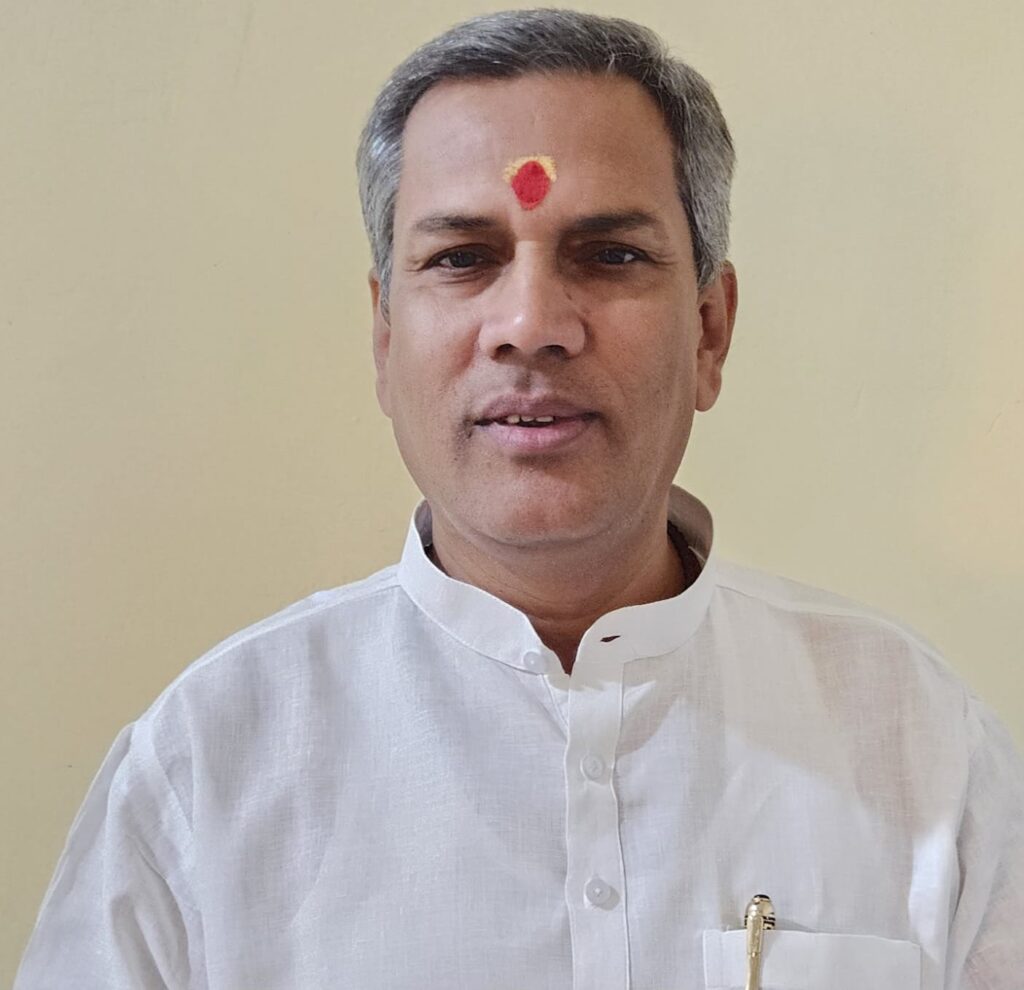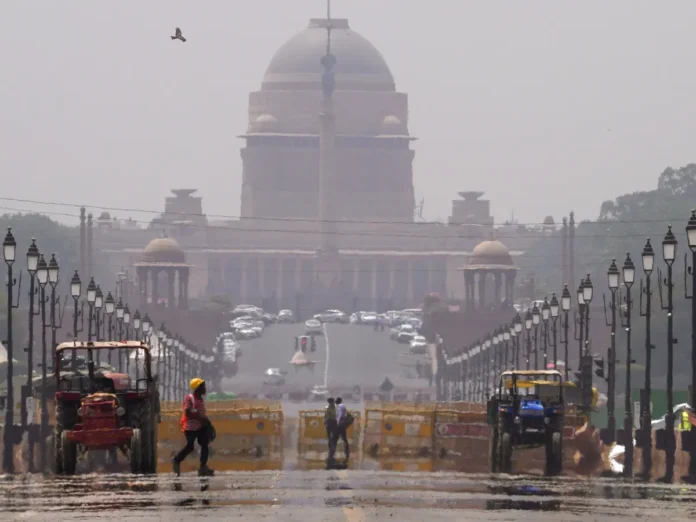Initiatives such as rainwater harvesting, water recycling, and efficient irrigation practices are being encouraged to reduce demand pressures and ensure the sustainable utilization of available water resources

Jeev Kant Jha
In the sprawling urban landscape of Delhi, the year 2041 represents a critical juncture in the city’s journey towards sustainable urban planning. With an escalating population and increasing pressures on natural resources, Delhi faces formidable environmental challenges that necessitate innovative solutions and concerted efforts in urban management. At the forefront of these challenges lie the urgent needs to manage water resources efficiently, revolutionize waste disposal practices, and embrace green initiatives that enhance environmental quality and resilience.
Enhancing Water Management: Ensuring Sustainability and Resilience
Water scarcity poses a significant threat to Delhi’s future viability. The city’s reliance on groundwater has led to depletion and quality degradation, exacerbating challenges posed by erratic monsoons and climate change. Recognizing these vulnerabilities, Delhi’s urban planners are pivoting towards a paradigm of sustainable water management. Central to this approach is the enhancement of water infrastructure, including the expansion and modernization of distribution networks and the augmentation of treatment facilities.
Efforts are underway to improve water governance and promote water conservation measures across sectors. Initiatives such as rainwater harvesting, water recycling, and efficient irrigation practices are being encouraged to reduce demand pressures and ensure the sustainable utilization of available water resources. Additionally, public awareness campaigns and educational programs are fostering a culture of water conservation among residents and businesses alike, emphasizing the collective responsibility towards safeguarding this precious resource for future generations.
Revolutionizing Waste Disposal: From Landfills to Circular Economy
The management of solid waste presents another critical environmental challenge for Delhi. Historically, the city has grappled with inefficient waste disposal practices, leading to the proliferation of landfills and associated environmental hazards. In contrast to developed nations where advanced waste management technologies and recycling programs are commonplace, Delhi has lagged behind, with a significant proportion of its waste ending up in landfills, contributing to air and water pollution as well as greenhouse gas emissions.
To address these issues, Delhi is undertaking comprehensive reforms in waste management, with a shift towards a circular economy approach. This entails minimizing waste generation, maximizing resource recovery through recycling and composting, and promoting sustainable consumption patterns. Integrated waste management systems, including segregation at source and decentralized processing facilities, are being implemented to reduce the burden on landfills and mitigate environmental impacts.
Policy initiatives such as extended producer responsibility (EPR) and incentives for waste-to-energy projects are incentivizing businesses and industries to adopt sustainable practices and contribute to the circular economy framework. Moreover, public-private partnerships are being forged to leverage technological innovations and best practices from global leaders in waste management, aiming to achieve zero waste and enhance environmental quality in Delhi.
Embracing Green Initiatives: Urban Forestry and Sustainable Land Use
Amidst Delhi’s concrete jungle, the integration of green spaces and urban forestry emerges as a pivotal strategy in enhancing environmental resilience and mitigating the urban heat island effect. Green areas not only provide natural habitats for biodiversity but also act as carbon sinks, absorbing pollutants and reducing ambient temperatures. Recognizing these benefits, Delhi’s master plan emphasizes the expansion of green belts, parks, and urban forests as integral components of sustainable urban development.
Despite delays in official notifications and implementation challenges, efforts to enhance green cover are gaining momentum through community-driven initiatives and government interventions. Urban planning strategies prioritize the creation of green corridors, biodiversity hotspots, and pedestrian-friendly landscapes that promote physical and mental well-being among residents. Additionally, initiatives like vertical gardens, rooftop greening, and tree plantation drives are fostering a culture of environmental stewardship and enhancing the aesthetic appeal of urban spaces.
National Commitments and Global Imperatives: Aligning Delhi’s Agenda with Climate Goals
Delhi’s environmental aspirations are intertwined with India’s broader commitments on the global stage, particularly in light of the Paris Agreement and subsequent climate accords. During COP-26, India pledged to achieve net-zero emissions by 2070, underscoring the nation’s resolve to mitigate climate change impacts and transition towards a low-carbon economy. However, the discrepancy in timelines compared to global counterparts necessitates accelerated action and alignment of policies at the national and local levels.
To bridge this gap, Delhi is aligning its urban planning strategies with national climate goals, focusing on energy efficiency, renewable energy integration, and sustainable transport solutions. Initiatives such as electric vehicle infrastructure, green building certifications, and climate-resilient infrastructure are being prioritized to reduce carbon footprints and enhance urban sustainability. Moreover, collaborative platforms involving policymakers, researchers, and civil society stakeholders are facilitating knowledge sharing and fostering innovation in climate adaptation and mitigation strategies.
Lessons from Successful Initiatives: Scaling Up and Replicating Best Practices
Delhi draws inspiration from successful environmental initiatives implemented across India, such as Telangana’s “Harita Haram” and Gujarat’s solar power expansion programs. These initiatives exemplify the transformative impact of targeted interventions and community engagement in achieving environmental sustainability goals. By scaling up proven practices and replicating successful models, Delhi aims to leverage local expertise and innovation to address complex environmental challenges effectively.
Lessons learned from these initiatives underscore the importance of political will, institutional capacity building, and stakeholder engagement in driving sustainable urban development. Collaborative governance frameworks that foster partnerships between government agencies, private sector entities, and civil society organizations are instrumental in overcoming barriers to implementation and ensuring the long-term success of environmental initiatives in Delhi.
The Path Forward: Coordinated Action and Stakeholder Engagement
As Delhi navigates the complexities of urbanization and environmental stewardship, the path forward hinges on coordinated action, robust governance structures, and inclusive stakeholder engagement. Strengthening institutional capacities, enhancing regulatory frameworks, and mainstreaming environmental considerations into urban planning processes are critical imperatives for achieving sustainable development goals by 2041.
Delhi’s journey towards environmental resilience requires a paradigm shift towards holistic urban planning that integrates water management, waste reduction, and green infrastructure development. By embracing innovation, fostering partnerships, and prioritizing community participation, Delhi can emerge as a global leader in sustainable urban development, setting a precedent for cities worldwide to emulate in their pursuit of a greener and more livable future.
The environmental challenges facing Delhi in 2041 demand bold and decisive action to safeguard natural resources, enhance resilience to climate impacts, and improve quality of life for all residents. By adopting a comprehensive approach that addresses water scarcity, revolutionizes waste management practices, embraces green initiatives, and aligns with global climate goals, Delhi can pave the way for sustainable urban development. With unwavering commitment and collective effort, Delhi has the potential to transform into a model city where environmental sustainability and urban prosperity go hand in hand, ensuring a brighter and more sustainable future for generations to come.


